If you are buying or selling a home that has a septic system in the State of Massachusetts, there are a few things you need to know. A brand new septic system can cost you as much as $30,000 or more to replace, however with proper septic system maintenance, it can continue to work effectively and efficiently for approximately 25 years.
The standard home inspection that is required when you buy or sell your home in Massachusetts does not include an inspection of the septic system. There is a separate inspection required in the State of Massachusetts that homeowners need to be aware of, which is called the Title 5 Inspection.
What is a Title 5 Inspection?
A Title 5 Inspection is a complete and thorough inspection of your septic system. This inspection must be performed by a person who has been certified by the State of Massachusetts through the Massachusetts Department of Environmental Protection.
A Title 5 Inspection is a part of the Environmental Code for the State of Massachusetts, which regulates all septic systems and works to provide these inspections for the health and safety of the public, as well as the protection of the environment.
The inspection checks to ensure that the septic system has been properly constructed and checks to ensure that any upgrades were done according to code and state regulations. The inspector also checks to ensure that proper septic maintenance has been performed throughout the lifetime of the system.
For the Buyer
In the State of Massachusetts, it is the responsibility of the buyer to ask the seller about the septic systems. You should ask when the system was last pumped and how many people are currently living in the home. A typical system should be pumped about every 2-3 years, more often if there are more than 5 residents in the home. Increased demand, particularly in a situation where more people are living in the home than it was designed to hold, can lead to many damaging problems.
The number of bedrooms in a home dictates the design and capacity of the septic system that gets installed. However, in some cases, a home may have more bedrooms than the original design due to remodeling or by poor quality design by the installer. A home that has more bedrooms than the system was designed for will very likely experience system failure much earlier than the typical longevity for a residential system.
Once you get the information from the seller, make sure to consult with a septic system inspection and maintenance service that is certified in the State of Massachusetts, such as Septic Preservation Services. SPS is certified to inspect septic systems all over Southeastern Massachusetts and Rhode Island as well as New Hampshire and Maine and can give you the information you need about the health and condition of the septic system in a home you are thinking about buying.
For the Seller
If you are thinking about selling your home you should make sure that you get proper septic system maintenance and consider calling out a local service to do a review of your system. SPS offers a service known as a Confidential Voluntary Assessment, which will go through your entire system, just like a Title 5 Inspection. This assessment is completely confidential, giving you the opportunity to repair or maintain your system without having to go through the state like you would with an official Title 5.
Proper septic system maintenance should be taken care of year round from the day you purchase your home, and should not be thought of as a last minute fix before selling your home. The tank should be pumped on a regular schedule, the drain field should be kept free of vegetation that could clog the drain lines and your entire family needs to be aware of excessive water use hazards. An annual inspection of your system will help monitor it for any minor problems that can be fixed before they result in major, costly repairs.
Once you are sure that your system is working effectively and efficiently, you can get a Title 5 Inspection. This is an excellent selling point because once your system is certified in the State of Massachusetts, you can list it as “Title 5 Certified” with your real estate agent. If your system fails the inspection and you are unable to get it fixed, you would need to list it as “Failed Title 5” with the agency. While this can be a problem for some buyers, it is better to let them know up front what to expect when they purchase your home.
The More You Know…
Before you buy or sell your home in Massachusetts, it is important to know everything you can about proper septic system maintenance and care, as well as requirements of Title 5 Inspection by the State of Massachusetts. Call Septic Preservation Services for a consultation if you unsure of how to proceed. We service residential and commercial customers all over Southeastern Massachusetts, including New Bedford, Fall River, Middleboro, Dartmouth and out on the Cape, as well as all throughout Rhode Island, New Hampshire and Maine. Give us a call at 877—378-4279 for more information about our septic and wastewater services or visit www.septicpreservation.com
you are buying or selling a home that has a septic system in the State of Massachusetts, there are a few things you need to know. A brand new septic system can cost you as much as $30,000 or more to replace, however with proper septic system maintenance, it can continue to work effectively and efficiently for approximately 25 years.
The standard home inspection that is required when you buy or sell your home in Massachusetts does not include an inspection of the septic system. There is a separate inspection required in the State of Massachusetts that homeowners need to be aware of, which is called the Title 5 Inspection.
What is a Title 5 Inspection?
A Title 5 Inspection is a complete and thorough inspection of your septic system. This inspection must be performed by a person who has been certified by the State of Massachusetts through the Massachusetts Department of Environmental Protection.
A Title 5 Inspection is a part of the Environmental Code for the State of Massachusetts, which regulates all septic systems and works to provide these inspections for the health and safety of the public, as well as the protection of the environment.
The inspection checks to ensure that the septic system has been properly constructed and checks to ensure that any upgrades were done according to code and state regulations. The inspector also checks to ensure that proper septic maintenance has been performed throughout the lifetime of the system.
For the Buyer
In the State of Massachusetts, it is the responsibility of the buyer to ask the seller about the septic systems. You should ask when the system was last pumped and how many people are currently living in the home. A typical system should be pumped about every 2-3 years, more often if there are more than 5 residents in the home. Increased demand, particularly in a situation where more people are living in the home than it was designed to hold, can lead to many damaging problems.
The number of bedrooms in a home dictates the design and capacity of the septic system that gets installed. However, in some cases, a home may have more bedrooms than the original design due to remodeling or by poor quality design by the installer. A home that has more bedrooms than the system was designed for will very likely experience system failure much earlier than the typical longevity for a residential system.
Once you get the information from the seller, make sure to consult with a septic system inspection and maintenance service that is certified in the State of Massachusetts, such as All-Clear Septic out of Acushnet, Massachusetts. All-Clear is certified to inspect septic systems all over Southeastern Massachusetts and Rhode Island, and can give you the information you need about the health and condition of the septic system in a home you are thinking about buying.
For the Seller
If you are thinking about selling your home you should make sure that you get proper septic system maintenance and consider calling out a local service to do a review of your system. All-Clear Septic offers a service known as a Confidential Voluntary Assessment, which will go through your entire system, just like a Title 5 Inspection. This assessment is completely confidential, giving you the opportunity to repair or maintain your system without having to go through the state like you would with an official Title 5.
Proper septic system maintenance should be taken care of year round from the day you purchase your home, and should not be thought of as a last minute fix before selling your home. The tank should be pumped on a regular schedule, the drain field should be kept free of vegetation that could clog the drain lines and your entire family needs to be aware of excessive water use hazards. An annual inspection of your system will help monitor it for any minor problems that can be fixed before they result in major, costly repairs.
Once you are sure that your system is working effectively and efficiently, you can get a Title 5 Inspection. This is an excellent selling point because once your system is certified in the State of Massachusetts, you can list it as “Title 5 Certified” with your real estate agent. If your system fails the inspection and you are unable to get it fixed, you would need to list it as “Failed Title 5” with the agency. While this can be a problem for some buyers, it is better to let them know up front what to expect when they purchase your home.
The More You Know…
Before you buy or sell your home in Massachusetts, it is important to know everything you can about proper septic system maintenance and care, as well as requirements of Title 5 Inspection by the State of Massachusetts. Call All-Clear Septic for a consultation if you unsure of how to proceed. We service residential and commercial customers all over Southeastern Massachusetts, including New Bedford, Fall River, Middleboro, Dartmouth and out on the Cape, as well as all throughout Rhode Island. Give us a call at 508-763-4431 for more information about our septic and wastewater services or visit www.allclearseptic.com
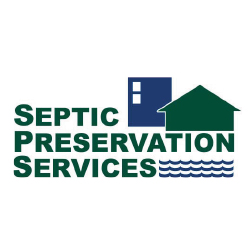 8/12/16 Septic Preservation Services is improving its effort to keep our team members safe while conducting septic inspections and septic installations. All team members will now be required to attend an OSHA 30 class. If you are looking for a septic inspector or septic installer be sure to hire a safe professional.
8/12/16 Septic Preservation Services is improving its effort to keep our team members safe while conducting septic inspections and septic installations. All team members will now be required to attend an OSHA 30 class. If you are looking for a septic inspector or septic installer be sure to hire a safe professional.
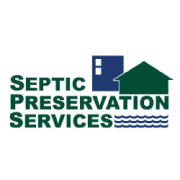
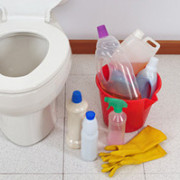
 How do antibacterial soaps affect your septic system?
How do antibacterial soaps affect your septic system?


 If you are a homeowner with a septic system, you know how to use your senses to stay alert about potential issues that might occur. While preventative maintenance is the best way to stop a backed up septic system before it even starts, it is also important to know how to use your ears, eyes and nose to spot a problem before it gets out of hand.
If you are a homeowner with a septic system, you know how to use your senses to stay alert about potential issues that might occur. While preventative maintenance is the best way to stop a backed up septic system before it even starts, it is also important to know how to use your ears, eyes and nose to spot a problem before it gets out of hand.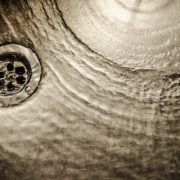
 Drain cleaners can be an easy choice when your kitchen or bathroom drain becomes clogged, but they are not a great choice for the health of your septic system. Septic systems rely on natural bacteria to treat wastewater. The harsh chemicals found in drain cleaners can kill the beneficial bacteria needed by your septic system to process wastewater.
Drain cleaners can be an easy choice when your kitchen or bathroom drain becomes clogged, but they are not a great choice for the health of your septic system. Septic systems rely on natural bacteria to treat wastewater. The harsh chemicals found in drain cleaners can kill the beneficial bacteria needed by your septic system to process wastewater.